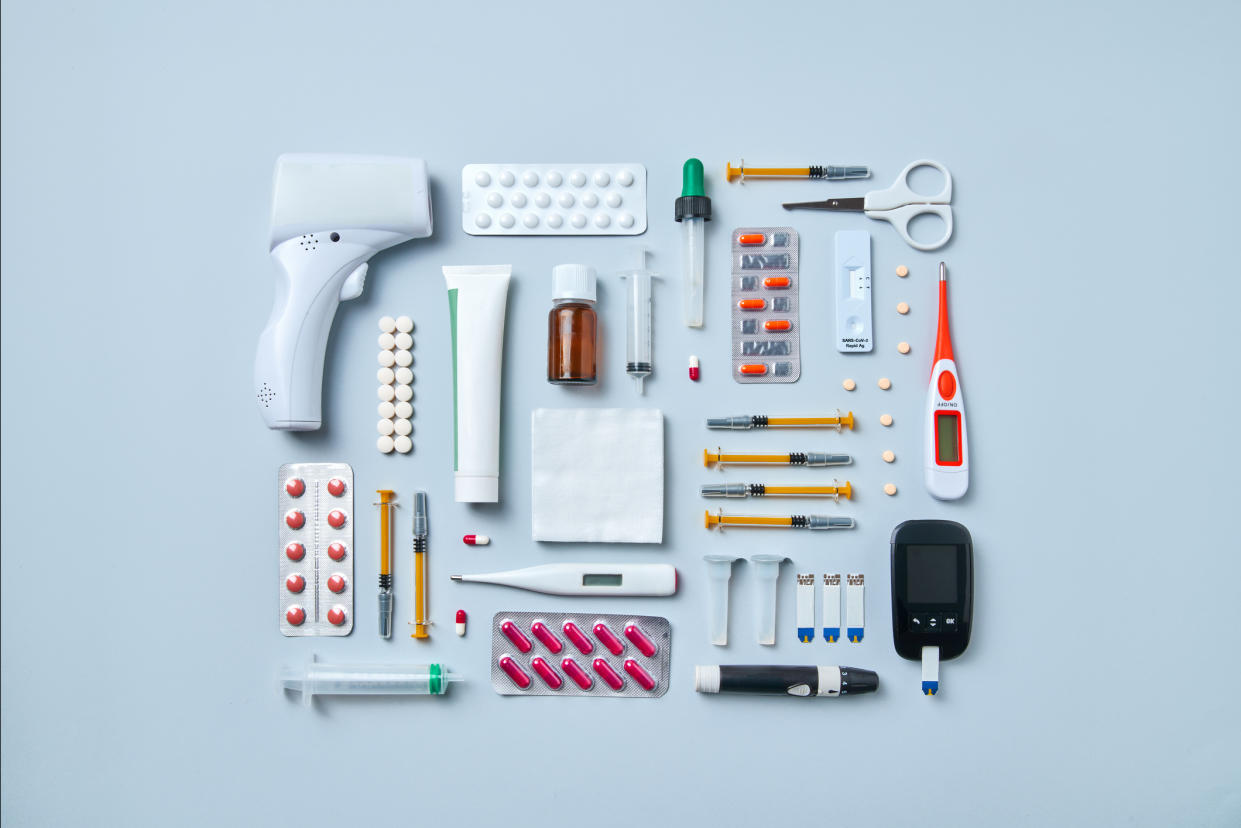Leftover FSA money? These are 9 ways you can spend it before it's gone.

The year is almost over, which means that if you have any funds remaining in your flexible spending account (FSA), it's time to use them up. While some employers will allow you to roll over your funds to the new year, according to CBS News, "FSA balances typically expire at the end of the calendar year." This means that you have just weeks left to spend any pre-tax dollars you've saved in the account, which are only usable for qualified medical expenses.
Those spending guidelines might sound limiting, but in reality, you can use the money in your FSA for more than you may have realized. If you're stumped on how to spend your remaining FSA balance before you lose it on Dec. 31, here are nine ideas to consider.
1. Over-the-counter medications
Especially as we get into cold and flu season, purchasing some over-the-counter cold and flu medicine may be a good idea — and it also happens to be something you can use your FSA for. Other medications that you can restock with your FSA funds include:
Allergy and sinus medication
Cough drops and throat lozenges
Pain relievers
Antacids
Sleep aids
Menstrual pain relievers
2. First aid supplies
You might also consider tapping your FSA for a restock of first aid supplies. This can include items like bandages, antibiotic ointment, or even just a general first aid kit. As Investopedia pointed out, "it’s hard to have enough Band-Aids, wraps, and all of those other items we use throughout the year, especially if there are children in the house."
3. Menstrual products
According to CNBC, "back in 2020, the IRS approved women's menstrual products such as pads and tampons as eligible items under an FSA." You might also use your funds for items like menstrual cups and period-specific underwear, per Investopedia.
4. Diabetic supplies
As Investopedia highlighted, "blood sugar monitors, test strips, and any diagnostic testing supplies are eligible" for use of FSA funds. Additionally, you may be able to purchase "testing for health problems other than diabetes as well."
5. Eyeglasses or contact lenses
You can use your FSA to help cover visits to the optometrist or ophthalmologist, but it's also possible to use the funds to purchase eyecare items. Per Experian, "you can use your FSA for prescription eyeglasses, prescription sunglasses, and non-prescription reading glasses or blue-blocker glasses," as well as for "contact lenses and supplies, such as cleaning solution and lens cases."
6. Certain fitness or biometric trackers
According to CNBC, "you can now purchase certain biometric or fitness trackers, such as an Oura Ring or a Withings ScanWatch, as an eligible FSA" expense. For "an activity tracker such as a Fitbit or a Garmin," however, people will need to "provide a letter of medical necessity from their doctor," per CNBC.
7. Certain skin care products
It's also possible to use your FSA funds to purchase select skincare products. "Sunscreens with SPF 15+ are covered as well as any acne treatments with certain ingredients such as salicylic acid," according to CNBC, alongside "eczema-approved creams and lotions." Plus, it's not necessary to go to any particular type of store for these purchases to qualify. Per CNBC, "certain skin care purchases at beauty retailers such as Sephora and Ulta may qualify, too."
8. Baby products
If you're expecting or you already have an infant at home, use your leftover FSA balance to stock up on baby products. Per Experian, "FSA funds can help foot the cost of breast pumps and accessories, lactation consultants or breastfeeding classes, baby bottles, baby rash ointment, children's sunscreen, baby breathing monitors and infant formula." For some items to qualify, however, you may need to get a letter of medical necessity (LMN) from your doctor, as "FSA expenses must be medically necessary," explained Experian.
9. Non-traditional medical treatments
You can use FSA funds for more than just visits to your primary care doctor. According to Experian, "acupuncture, chiropractic care, holistic healers, and homeopathic medicine are qualifying FSA expenses." You might also be able to tap your FSA to cover physical therapy or massage therapy, according to CBS News.

